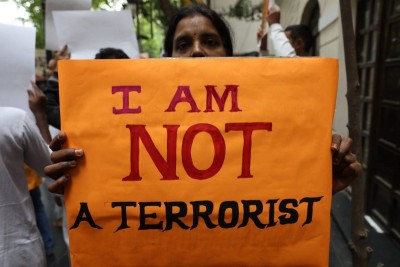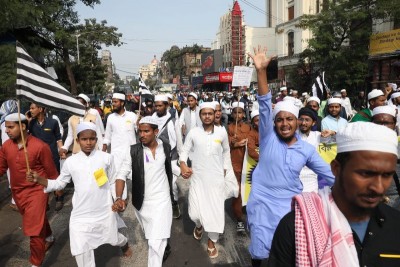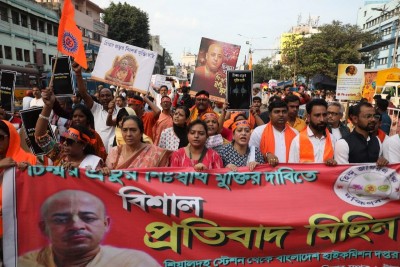
Britain and India must forge bold relationship to shape new world
And universities such as Birmingham have an important role to play in progressing the countries’ relationship by forging strong bonds with their Indian counterparts to make the most of each other’s expertise.
Introduced by University of Birmingham Chancellor Lord Bilimoria of Chelsea, Dr Ashwani Kumar delivered a keynote lecture last night (Tues) in an event jointly hosted by the Universities of Birmingham and Nottingham.
Dr Kumar’s address focussed on complementary objectives and interests between the UK and India, as well as the need for a common resolve to meet challenges to freedom and democracy throughout the world.
He outlined key areas of future co-operation, including economic growth, nuclear and renewable energy, counter-terrorism and biotechnology.
Dr Kumar said: “Britain and India must stand together in defence of threatened human freedoms and for establishing a global order and the equalising force of law. We must build on our long history for a common future – it is still possible to be proud nationalists and globalists.
It is imperative for Britain to cherish its special relationship with India and a shared commitment to democracy, equality and inclusion – everything that promotes the greatest happiness of the largest number of people.
“We have shared political values, cultural and historical linkages, common interest in the reform of multilateral institutions, a shared stake in the stability of domestic regimes against fundamentalist forces and a commitment to the principles of the welfare state for the establishment of just societies – placing India and the UK on the same side of history.
“In these troubled times, when demagogues push the boundaries of democratic politics, India and the UK need to forge a unity of purpose to reclaim the moral centre. The values enshrined in the Magna Carta and the world view found in India’s cultural heritage of ‘Vasudhaiva Kutumbhkum’ must naturally inspire this joint enterprise to bring reason to the world in the service of global justice and democracy.”
Dr Kumar added that the UK: India joint statement that followed the London summit talks of November 2015 had set the tone for a British-Indian relationship to tackle the challenges of the 21st century together; jointly benefiting from an Indian economy predicted to be the largest in the world by 2050 in terms of purchasing power parity.
“British universities, such as Birmingham and Nottingham, have a major contribution to make. They must forge relationships with Indian universities and develop collaborative research frameworks that will help to secure great visibility for universities in India,” said Dr Kumar.
“I firmly believe that the finest education you can get is at British universities and we need to see many more students from India coming to the UK to further their education.”
A distinguished lawyer, parliamentarian, author and speaker, Dr Kumar has represented India at the highest forums of politics and diplomacy.
Professor Robin Mason, Pro-Vice-Chancellor (International) at the University of Birmingham, said: “We were delighted to welcome Dr Kumar to the University of Birmingham. As one of India’s most eminent political and diplomatic figures, Dr Kumar is perfectly placed to comment on the future of UK-India relations and we were enthralled by his fascinating insights.
“As a civic university with a global outlook, we were pleased to work in partnership with the University of Nottingham to give people in the UK this unique opportunity to listen to and ask questions of an influential and distinguished thought leader.”
Dr Kumar was the youngest designated Senior Counsel of the Supreme Court of India and one of the youngest Additional Solicitors General of India. He represented the State of Punjab in the Rajya Sabha (Upper House) for an uninterrupted period of 14 years.
He served in the Union Government as Minister of State in the Departments of Industrial Policy & Planning, Parliamentary Affairs, Planning, Science, Technology and Earth Sciences. He later served as the Cabinet Minister for Law & Justice in the UPA II in 2013.
Since retiring from the Upper House of Indian Parliament Dr Kumar has resumed active practice of Law as a Senior Advocate at the Supreme Court of India.
Support Our Journalism
We cannot do without you.. your contribution supports unbiased journalism
IBNS is not driven by any ism- not wokeism, not racism, not skewed secularism, not hyper right-wing or left liberal ideals, nor by any hardline religious beliefs or hyper nationalism. We want to serve you good old objective news, as they are. We do not judge or preach. We let people decide for themselves. We only try to present factual and well-sourced news.







